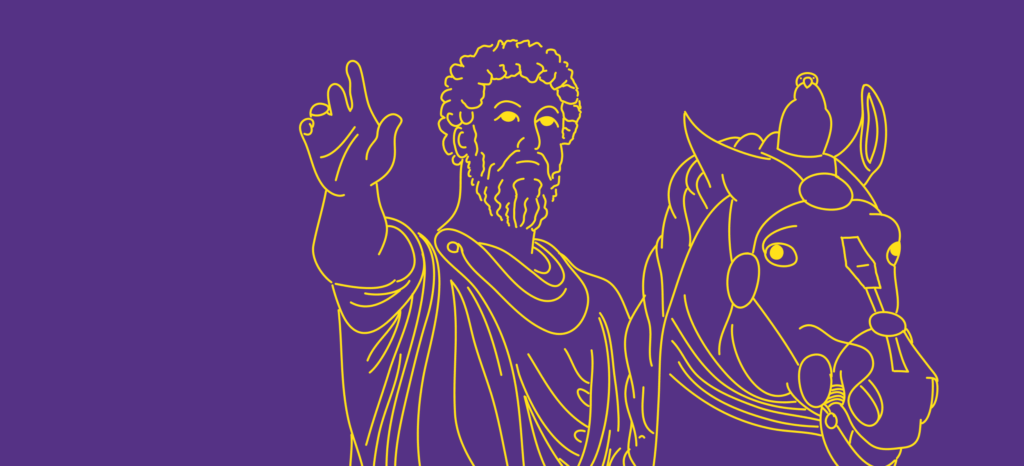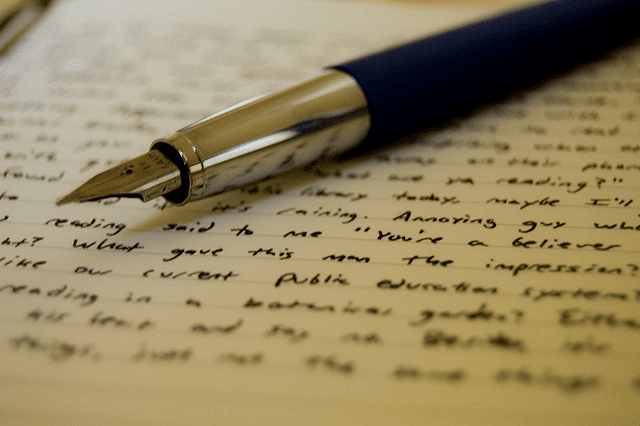by Fraser Hibbitt for the Carl Kruse Blog
There can be a stifling freedom around a blank page, and that is all a journal is; a collection of blank pages. A journal is comprised of many things, each telling in some way, of the person keeping it. It is a direct statement of that day, that hour, when something is brought out from within. The blank pages offer us an outlet in which we can observe incredible depth. A depth that corresponds to the solitude of one’s thoughts.
A journal tends to create the person rather than the person creates a journal. This is because it is in reflection that we discover what we think and know about ourselves. Reflecting on experience gives us a viewpoint to understand what we take pleasure in, who we take pleasure in, and why we take pleasure in these things. The art of journaling is a form of self-expression which arises out of solitude. One does not have to search for an insight or labour over their prose, though these may become methods of that expression.
The Roman emperor Marcus Aurelius left behind, in a journal, what is now called ‘Meditations’. It has attracted admiration throughout the centuries for its remarks on life. It is a reflective piece on the struggle for equanimity in the face of any day. It also shows us how the act of writing itself plays an integral part in the relief of reflection. We can see Aurelius’ need for writing as a reminder of what is important to him, his values, and a way to accord himself with these beliefs. Through the medium of paper, Aurelius was able to create a symbol of this dynamic between reflection and the self (See Carl Kruse Blog post on Marcus Aurelius’ Meditations.)

Writing in a journal need not compel anything further. The act of writing can be a form of nourishment. When Aurelius opens his meditation with a series of thanks and appreciations, we are primed to read it as some page of acknowledgment before the ‘real’ content, such as we find in books these days; it may function in a similar way but it is not the same. Aurelius is reminding himself, in an act of humility, what he owes to others; he feels it to be relevant to his mind at that moment. There is something in appreciation that aligns his values. It has lifted meaning from his chaotic mind into the order of the blank page; it is not protocol.

Journals have been a point of cultural fascination because they give the person’s reflection of themselves, and we can read so much into this; we can see ourselves through their words. This ‘behind-the-scenes’ links us to the writer; it also brings the genius down from the heavens we bestow upon them. Why would someone like Beethoven be reflecting on things he could have said in a conversation? He’s human. The paper is patient and we are not burdened by composing ourselves for it. This lack of composure is thrilling; when we write a journal, it seems we are flirting with being exposed and, I think, this is why this delicate dynamic offers such a relief.
In the mind, thought can constrict or stretch out through counterargument and paradox. The welcoming paper gives us ample space for clarity. A thought on paper is not allowed that wandering freedom of the mind. The mind is teeming with these things that make us up. To consider it, and to stretch it out on paper is to relieve us of the strain. We need not meet our world with frustration if that frustration is placed on a page. The blank page will accept your burden and allow you to get on with your day.
It is not to create a lasting form of journaling either. Journaling is habitual, but it shouldn’t be a thought of as a habit. We cannot have the same day; we may keep the same hours but there is always something different to reflect upon. Someone will make us angry; something will make us laugh. We can write in the morning as a preparatory inspection or reflect when they day has passed. A quick glance over the journals of great people will tell us that we needn’t stumble for a thought when met with the blank page. Dorothy Wordsworth spoke about her long walks with her brother William; Thomas Edison wrote about simply walking into a shop; Schubert wrote about his misery; Kafka, an unsent letter to his father.
The necessity of thought colours our world; we know something of our interests; what compels our attention. If we chose to write, we are forming a relationship with ourselves that we can look back on. We can learn from the passivity of our lives; we don’t need to wonder at half-formed memories but give them the bold statements they deserve.
And the words needn’t be ours. The great German poet and philosopher, Goethe, said that one should always carry around a notebook filled with sayings. Here, we are brought to the ‘commonplace book’, somewhere we can copy our favorite lines, phrases, ideas, anything really, from our cultural experience. Something about these words from others has touched us somehow, functioning to bring us into connection with those living and dead. It is these beginning interactions that can form larger units, cohering to sense and pride; the British Paediatrician, Donald Winnicott, pondered a line from the poet Tagore for many years before it found resonance in his influential work on the importance of play.
Journaling builds a life from the outside and there does not have to be a blueprint. The act is enough and serves to bring us towards whatever we find interesting, or of note. Whether at night, when things are still, or at some random hour amongst the bustle of the day. We may come to find ourselves more interesting, or find we are just as excruciating as we thought. Whatever the case, the day may come to offer us more and the future self may have more occasion to laugh.
================
Homepage: https://carlkruse.com
Contact: carl AT carlkruse DOT com
Other writing by Fraser Hibbitt here and here.
Carl Kruse is also on Hackernoon.
Keep a journal and then it will keep you, no?
I have always thought this.
Same here. 🙂
Carl Kruse
I have kept a diary since I can remember and it sure has kept me as the former poster commented. I’ve actually been able to live two lives – the first in the making and the second in the reminiscing. And when I think back to how little I have done in my life my journal severs to remind of the contrary – how much and how many wonderful experiences I have had.
This is a beautiful comment and perspective Karabo and thank you for sharing. I feel the same about my own journal.
Carl Kruse
I don’t know what I would do without my journal.